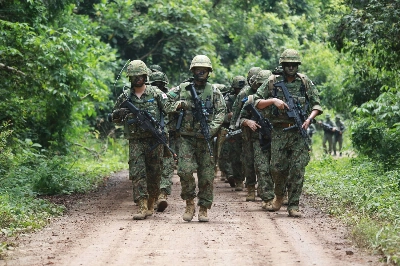Japan executed three people last year and imposed three new death sentences in what Amnesty International has also described as a secretive system.
A global report on death sentences and executions for 2016 cited the executions last March of Yasutoshi Kamata, 75, and Junko Yoshida, 56, and the November execution of Kenichi Tajiri, 45. All three were hanged, with Yoshida the first woman to be executed in Japan since 2012.
The figure was unchanged from 2015, when three prisoners were also hanged.
In its report, Amnesty said Japan imposed three new death sentences in 2016 and 141 people remained on death row as of the end of the year. Of these, 129 had their death sentence finalized, it said.
The human rights group also renewed its criticism of Japan's practice of executing people with mental or intellectual disabilities, while highlighting that the country and the U.S. were the only members of the Group of Seven developed nations to carry out executions.
Amnesty said in November that "secretive executions can't hide the fact that Japan is on the wrong side of history when it comes to the death penalty."
"Executions in Japan are shrouded in secrecy with prisoners typically given only a few hours' notice, but some may be given no warning at all. Their families, lawyers and the public are usually notified about the execution only after it has taken place," it said.
Last October, the Japanese Federation of Bar Associations formally issued a declaration stating its opposition to the death penalty and calling for authorities to abolish the punishment by 2020 and replace it with life imprisonment.
The move set the legal profession against the government, which has executed 17 people since Prime Minister Shinzo Abe came to power in 2012.
















With your current subscription plan you can comment on stories. However, before writing your first comment, please create a display name in the Profile section of your subscriber account page.